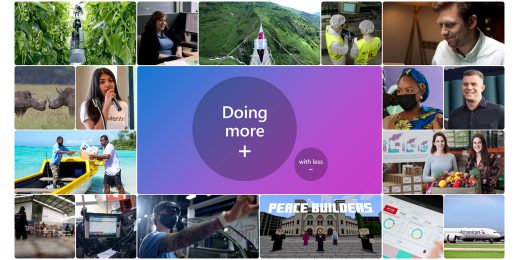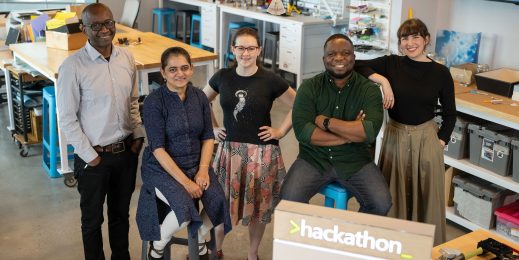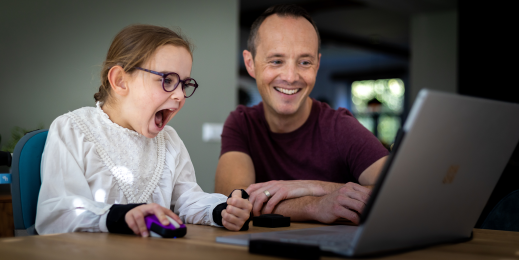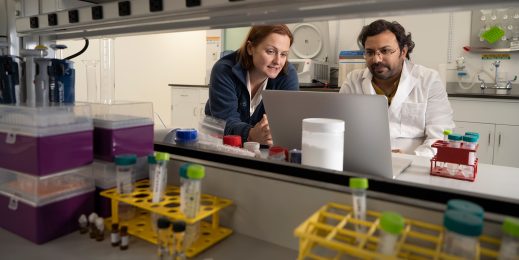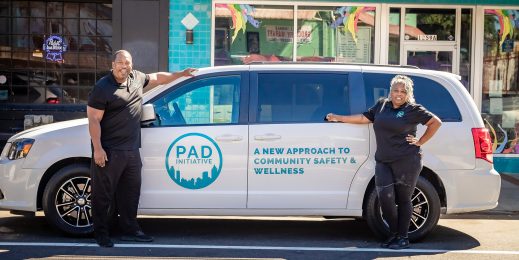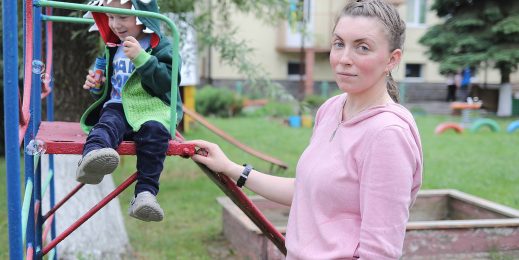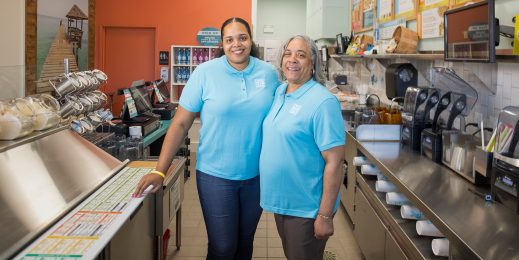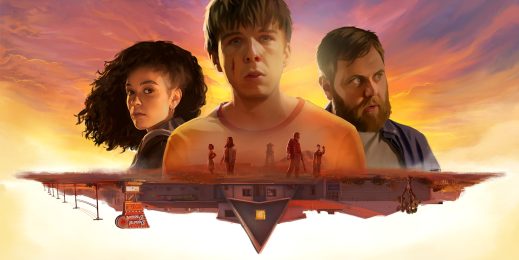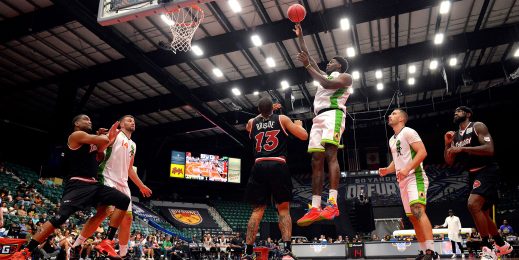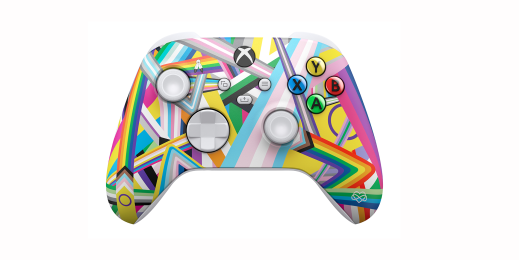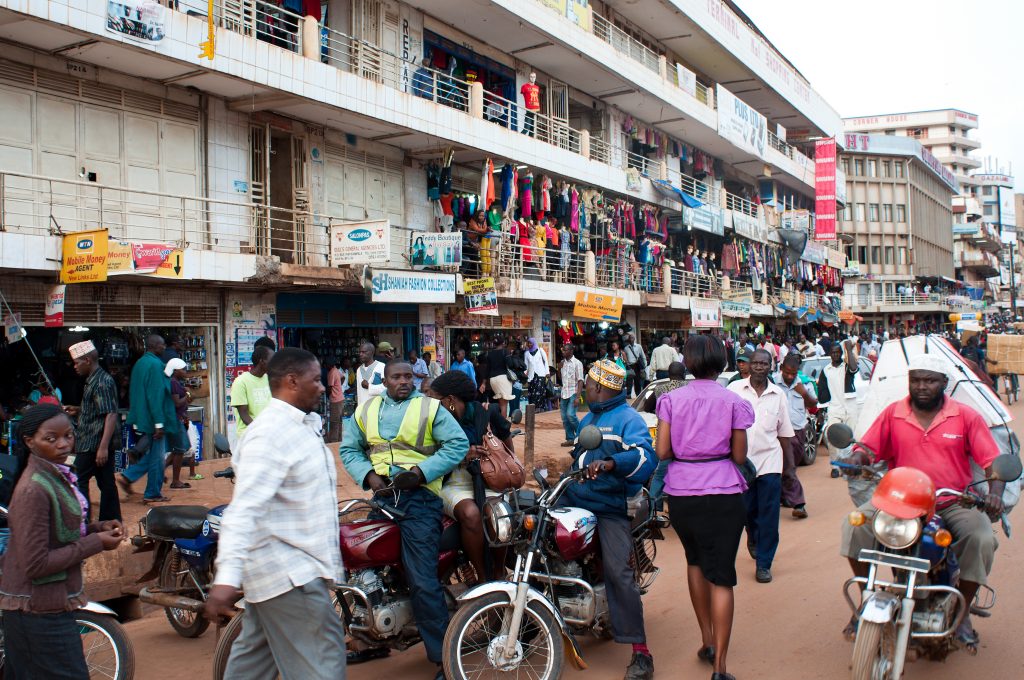
Inspired by We Day experience, Ugandan entrepreneurs create an ‘Uber for motorcycle taxis’
In much of the developing world, taxis are motorcycles, not cars. It’s a chaotic system, and even the most basic aspects of the service — such as hailing one, insuring it’s safe, and for the drivers, getting paid a good rate — are often left up to chance.
After getting a lift with app-sourced, ride-sharing service Uber while visiting the Bay Area last spring, Joshua Okello and Aaron Tushabe had an idea: Design an Uber-like service for Uganda’s motor cycle taxis, or “boda bodas.” They call the service EasyBoda.
Okello and Tushabe envision EasyBoda as a way, not only to improve the safety of hitching a ride for passengers, but to raise the standard of living for boda boda drivers across Uganda, while creating more jobs for young people in a country with one of the highest rates of youth unemployment worldwide.
It’s fitting that the developers were attending We Day California when inspiration struck. The purpose of the annual event that Microsoft YouthSpark sponsors is to celebrate the efforts of students who are taking real action to bring positive change to their neighborhoods, schools and communities. We Day is also part of Free the Children’s broader movement to equip and inspire millions of young people to be good citizens and to be part of addressing causes vital for the future of our global society.

Microsoft YouthSpark is sponsoring We Day again this year in both California and Washington. This year’s California event is being held Feb. 25 in San Jose. We Day in Seattle is April 23.
“At Microsoft, we believe that technology can empower young people to do more and achieve more in their lives and communities. We Day provides us a platform to inspire students to use technology to drive social change on a local and global scale,” says Lori Harnick, Microsoft’s general manager for Citizenship and Public Affairs.
Using technology to improve people’s lives is exactly what Okello and Tushabe have always hoped to do.
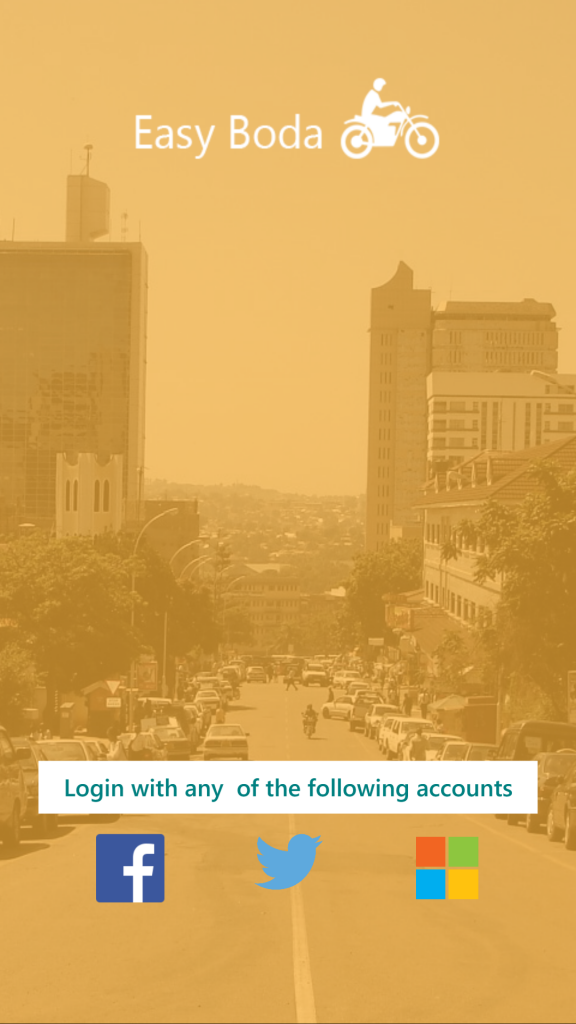 “We thought we could turn this huge business that’s largely an informal one into more of an organized business. If these drivers earn more money, they can better support their families,” Okello explains. “As young entrepreneurs, we love to focus on building community-centric solutions.”
“We thought we could turn this huge business that’s largely an informal one into more of an organized business. If these drivers earn more money, they can better support their families,” Okello explains. “As young entrepreneurs, we love to focus on building community-centric solutions.”
Having a job that can support a family is critical in a country where the unemployment rate for people under 30 is a staggering 62 percent. And young people in Uganda make up a giant slice of the overall population — about 68 percent of the country’s residents are under 25.
There are thousands of boda bodas buzzing around Kampala, Uganda’s capital and largest city. Most of them are driven by youth. In addition to offering more young people jobs, Okello hopes EasyBoda will attract more high-value clients because of its safety, reliability and convenience.
“Each of our riders will have two helmets. We also provide them with branded reflectors. We make sure they come on time. The passenger is also able to see how long a boda boda rider is going to take,” he says. “Each of our riders signs a contract that says ‘I agree to deliver a certain minimum quality of service.’ People can also prepay for a number of rides, or pay with mobile money.”
In the service business, security is a two-way street. EasyBoda also improves security for drivers. They will have location-aware services so they can be easily located if they run into trouble. Okello says his company will also offer co-insurance for the drivers, a perk that’s out of reach for most boda bodas today.
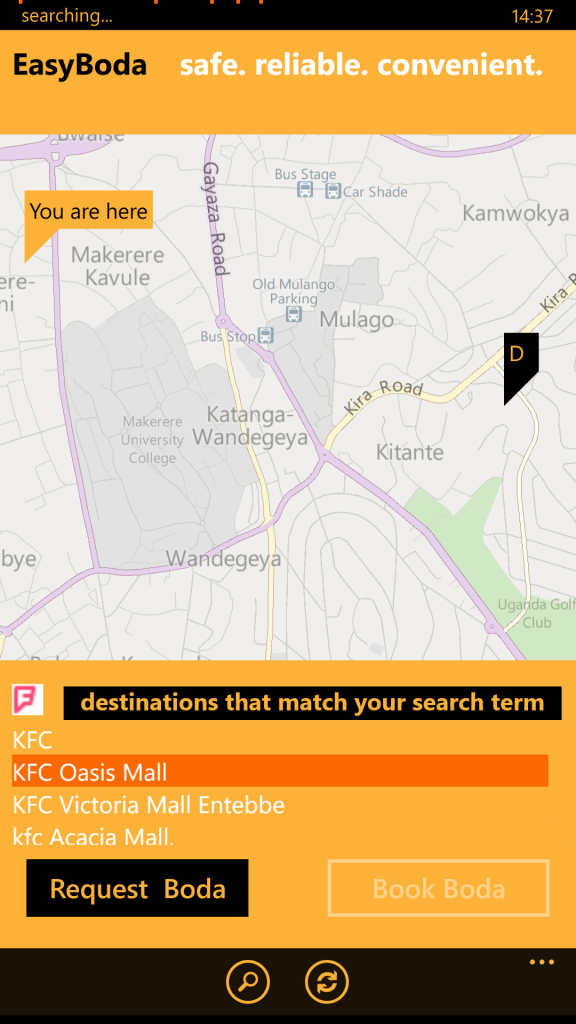 EasyBoda uses Bing Maps and Windows Azure. The app is ready on Windows Phone and in beta testing on Android. Okello and business partner Tushabe are hoping to launch a pilot of the service with 150 drivers early next month. The goal is to have between 800 and 900 EasyBoda riders on the streets of Kampala by the end of the year.
EasyBoda uses Bing Maps and Windows Azure. The app is ready on Windows Phone and in beta testing on Android. Okello and business partner Tushabe are hoping to launch a pilot of the service with 150 drivers early next month. The goal is to have between 800 and 900 EasyBoda riders on the streets of Kampala by the end of the year.
Okello and Tushabe made it to the finals of Microsoft’s 2011 Imagine Cup, a cornerstone of the Microsoft YouthSpark initiative, with a different project: a fetal Doppler app to assist midwives caring for pregnant women in the developing world. Imagine Cup is a technology program and competition that provides student developers and aspiring entrepreneurs the opportunity to collaborate, develop a technology application, create a business plan and gain an understanding of what it takes to bring a concept to market.
Okello says experiences like Microsoft Imagine Cup and We Day have been invaluable in helping him achieve his dreams of empowering people with the help of technology.
“We Day is the most inspiring event I’ve attended,” he explains. “It is testament that no matter what the human race goes through (war, disease, famine etc.), there’s an entire generation of young people out there who are passionate about serving their communities, regardless of any differences or geographical location.”
Harnick says young people like Okello are the reason Microsoft created YouthSpark, the company-wide, global initiative to create opportunities through technology for 300 million youth over three years.
“Young people have such tremendous potential,” she explains. “Our support of We Day, and its year-round, in-school program, We Act, is an important part of Microsoft YouthSpark because it lights up the possibilities for youth to create and capture new opportunities to change the world.”
Shown above, boda bodas on the streets of Kampala, Uganda. Lead photo credit: Tom Cockrem/Getty Images





